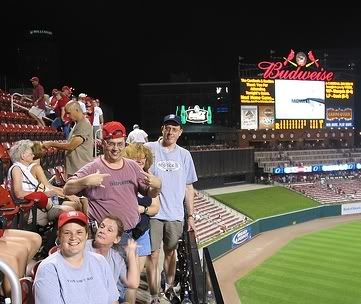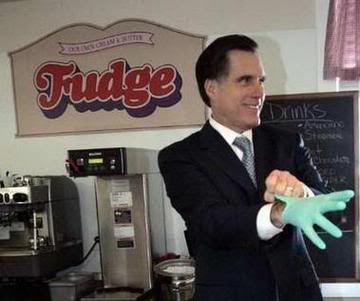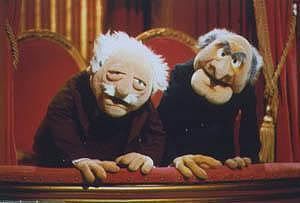


here's an excerpt from a story i'm working on.
AFTER THE FLOOD
By Kurt Brighton
The flood came and went. And so did the mercy the country showed New Orleans. Mercy was already in short supply in those days.
It’s even rarer now.
Mercy is not a quality that travels well. It has to be consumed on the spot, no questions asked, or it immediately begins to decay. Like when a stranger offers to buy you a shot: you’d better suck it down quick. There are no rain checks on mercy.
It was an especially tricky tight-wire act, feeling compassion for a place like New Orleans. Within weeks of images of human bodies floating face-down in the murky water being beamed into their homes, people in other parts of the country began to mutter things like, ‘Well, it’s kind of their fault, for living in a bowl ten feet below sea level.’
Which was true, in a monstrous, dimwitted sort of way. But a deeper truth underlying that short-sighted sentiment was a sense of moral superiority, a self-righteous schadenfreude that remained mostly unspoken. In parts of the country, certainly in the fish-belly white, Bible-thumping beer-gut that spread across the middle regions there was a tacit feeling that New Orleans had gotten what she deserved: Old Testament-style retribution for her sinful ways. There was a lascivious smacking of lips at the thought of all those hedonists getting flooded out of their filthy, debauched homes, their sex toys and drug stashes ruined. The nation’s diffident response to the disaster reflected that simmering acrimony.
But no matter where they’re from, no matter who is in trouble, politicians can’t resist a good disaster. They’re drawn to human misery like moths to a flame. Or like flies to shit. They came ready with big talk and teary-eyed sentimentalism, cued up and delivered on-camera for a briefly fascinated nation. They cried out against the injustice of it all, and rolled up their sleeves as if they might actually do some work.
They didn’t, actually. And they didn’t stick around for long, either. In the days that followed the disaster—which was not entirely man-made—after the cameras had recorded their sound bites, after carefully measured doses of garment-rending had been doled out for the focus group-tested masses, the politicians quickly dried their eyes.
Then they reapplied their make-up, rolled their sleeves back down, hopped into air-conditioned limousines and fled.
Some of them stopped for dinner in Baton Rouge before flying back to Washington.
By and large, what they left behind in the restaurants’ toilets would be their final contribution of any tangible kind to the residents of Louisiana.
Most of the politicians were gone before the water even began to recede. The mud it left behind dried into a caked-on gray brick that skittered to dust when subjected to stress. When it was crushed underfoot or broken with shovels it released a sickly, greenish-gray powder that was laden with dried sewage, household cleansers, motor oil, industrial chemicals from downstream plants—gods knew what else. People picked through the sodden remains of their lives, wept, and developed chronic coughs.
The press stayed a little longer than the politicians, but they too trickled away soon enough. There were always a few die-hard weirdoes clutching notebooks, walking the empty battlefield streets of the Ninth Ward trying to look poetic. But the big boys were long gone. Their blow-dryers and wardrobe racks had long since been packed up and shipped off to more arid climes.
After all, there was always some missing 18-year-old white girl with model good looks and a skeevy 28-year-old boyfriend whose story needed to be reported, even when nothing was happening. And when the spotlight turned away, so did the fickle attention of America.
New Orleans had long been the outcast cousin of American cities, perched on a backwater strip of rich black river mud. She was the slightly seedy one who always smelled of trouble—and liquor—but who always got away without having anything serious pinned on her. She was the black sheep of the American family who showed up every other Christmas, or randomly called to see if she could crash on your couch—a call which invariably came in the middle of the night. She was “the fun one” when you were kids, the older cousin who secretly smoked out back at family reunions, the cousin who bought you booze when you were underage, the cousin who always had rolling papers for some reason.
She had a great laugh and endless stories to tell, all of them bawdy and hilarious, all of them pushing just past the edges of what was considered decent, causing the more staid aunts and uncles to get flustered and to try to talk over her before they eventually gave up and left the room. She wasn’t the type who got invited to formal events. You wouldn’t want her to meet your fiancé’s parents, for instance. In fact, it was likely that your new spouse would only tolerate your wild cousin New Orleans while you were still dating, and only just. Grimly smiling and watching her through narrowed eyes, your wife-to-be would allow you to hang out with her occasionally, under strict supervision, but only until the day you heard those wedding bells. Once the honeymoon was over, the campaign would begin in earnest to detach you from cousin New Orleans for good.
At least she was tolerated—barely—back when she was a free-spirited party girl. But as soon as she was struck down by the hurricanes and the floods, as soon as she was helpless, all that changed.
America was not used to seeing her cry. That wasn’t the New Orleans we knew, and we turned our backs on her. She died just as gracefully, just as charmingly as she had lived, but she died alone. All the beauty and favors she had blessed us with over the years were forgotten. We abandoned her when it came time for her to depart.
But, hell, New Orleans had always been dying, even from her earliest days when she was little more than a series of planks set across the muck leading to shacks where travelers could buy liquor and sex. There was a Gallic sense of resignation embedded deep within her spirit:
Of course the sea would come, she shrugged. How could it not?
And of course, even fatalism didn’t help, not really. There was a sense of brutalization, of loss, a sense of betrayal after the flood, a sense that this oddly empty place that had been left behind after the waters had gone was not entirely real. What had been wrenched away could never come back. A certain magic was gone forever, destroyed by short-sighted, greedy men who did not give a good goddamn about magic.
Despite her reputation as a slattern, New Orleans had always had a certain innocence about her. She and her residents had been child-like in a way, in their unabashed desire to play, to feel good always, to be forever young.
That brightness was gone, after the flood. There was a hard edge to the faces that returned to their saturated, moldy homes after the exodus, a sharp-eyed suspicion that hadn’t been there before. They had been robbed of that innocence by a country that, in the final analysis, didn’t want to be bothered.
New Orleans slipped away under the waves, sad-eyed, weary, but smiling, while we watched from the safety of higher ground.
Of course the sea would come, we whispered. You knew that, darling.
Bonsoir.
***
















